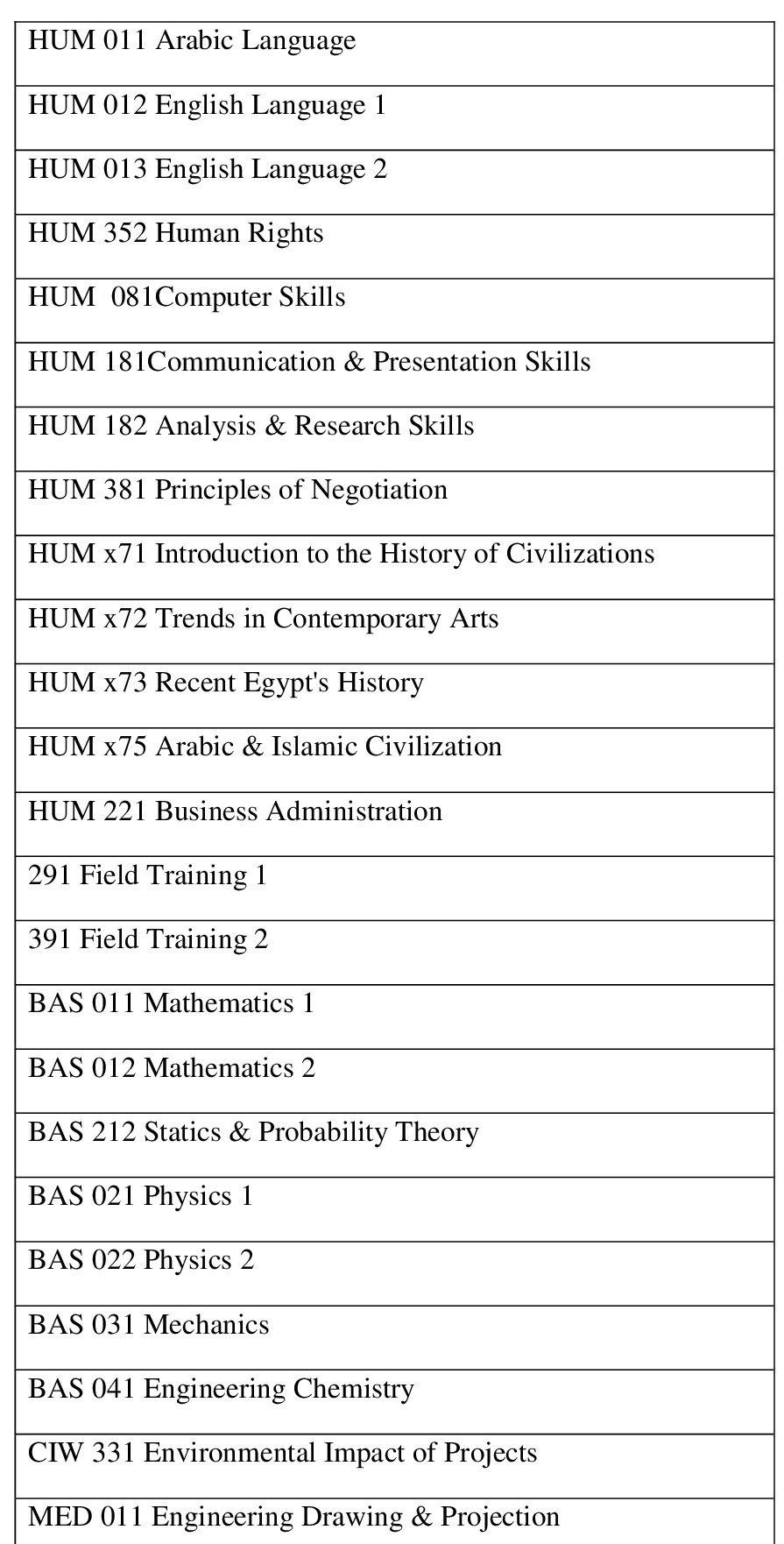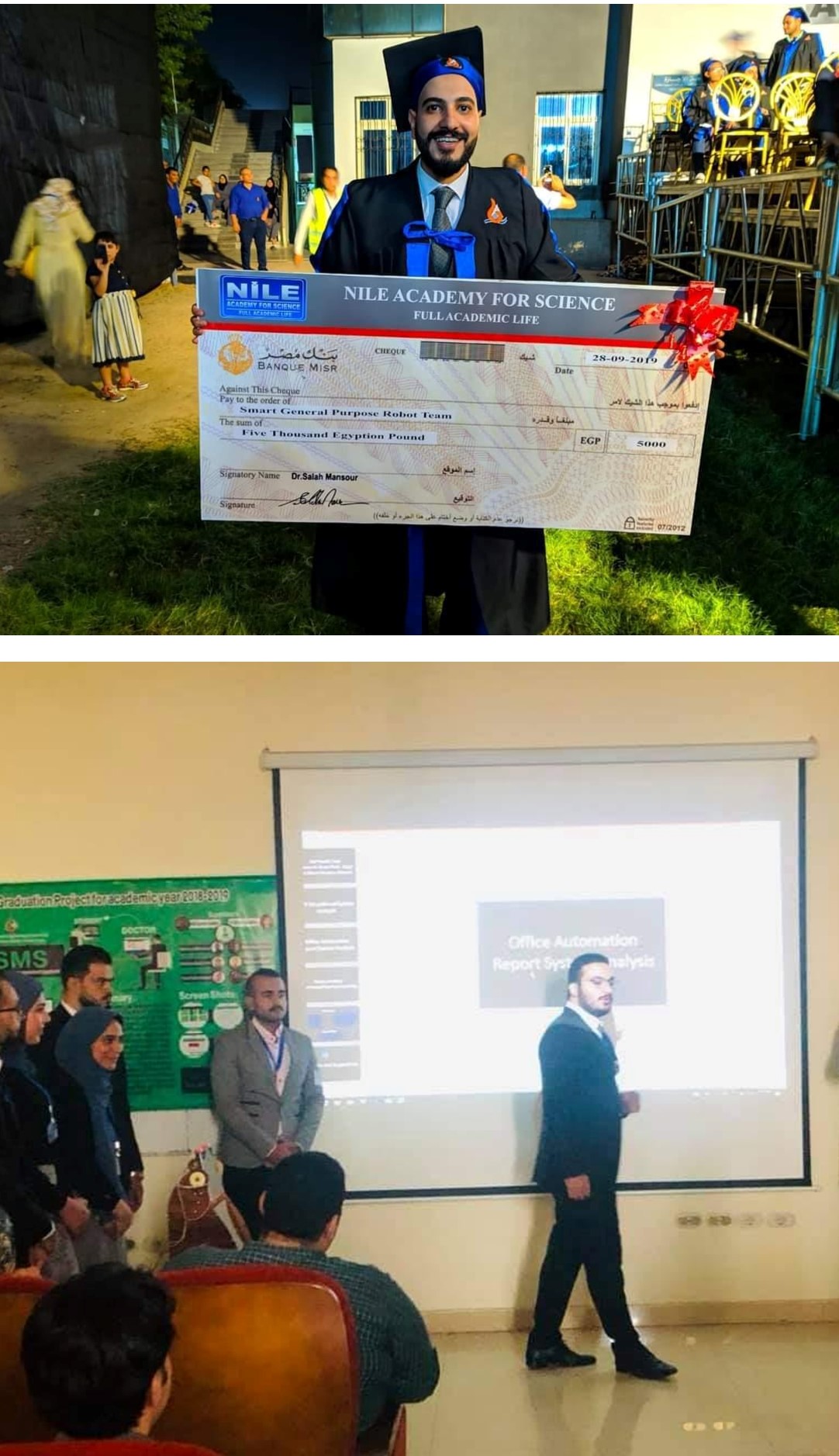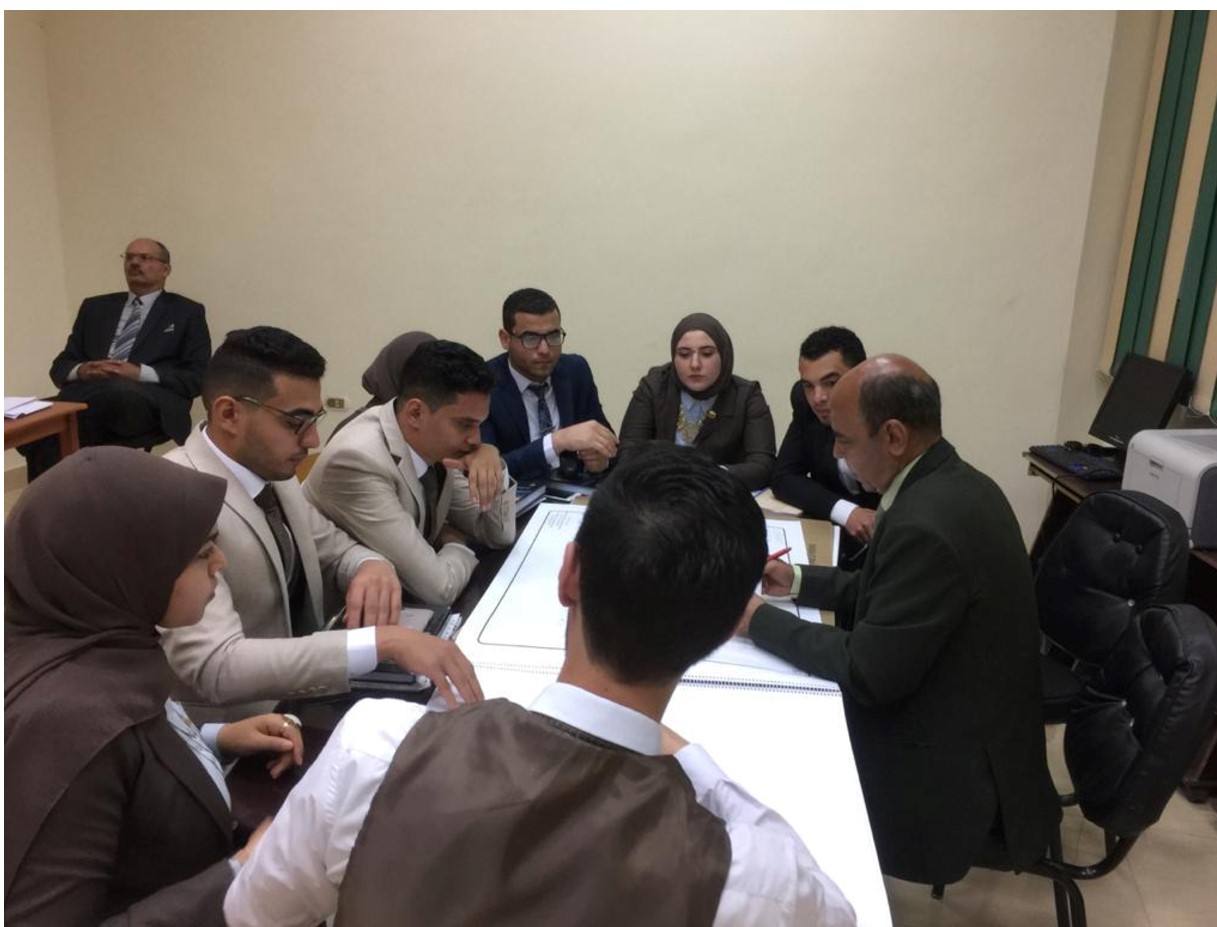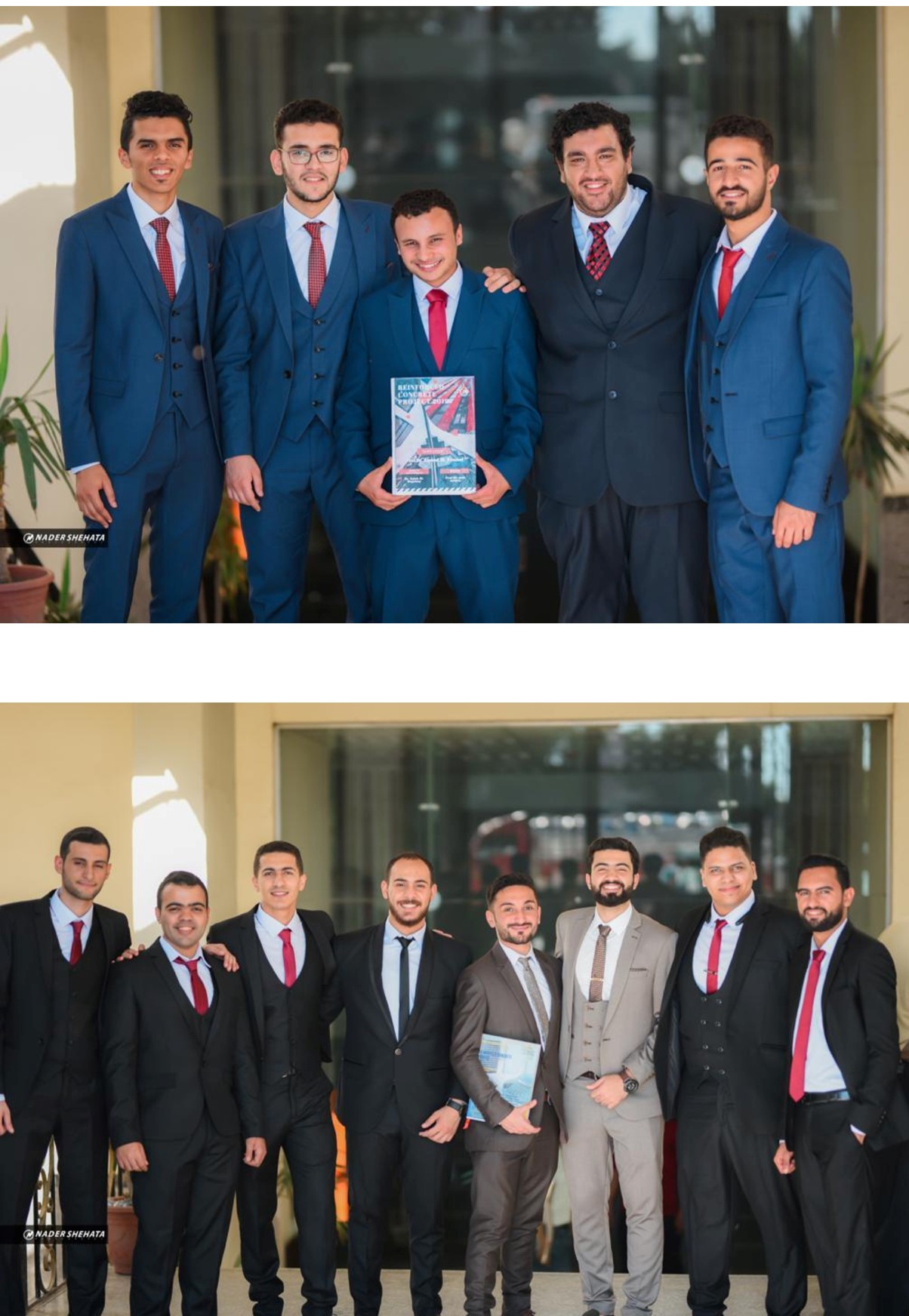Undergraduate Admission
The Nile Higher Institute for Engineering & Technology accepts students who have obtained the certificate of General Secondary Education (GSE) submitted through the Coordination Office, and applicants transferring from other educational institutions, after getting the approval of the Ministry of Higher Education, students holding equivalent certificates from Arab and foreign countries, holders of the American High School diploma, IGCSE certificate, and students obtained the certificate of Al-Azhar Secondary Education. The Institute accepts also nonEgyptian students according to the general rules and system of the state determined by the Minister of Higher Education.
The Institute accepts students with the following qualifications:
- Egyptian General Secondary Certificate (scientific section/ math) or its equivalent Egyptian and foreign certificates.
- Students obtained Azhar Secondary Certificates.
- Diploma of Technical Industrial Institutions.
- Diploma of Industrial secondary school certificate (3 - 5 years)
- The Institute accepts transfers from other institutes.
- The students are accepted through the Coordination Office or from the department (for Foreign Students' Admission and Grants) or through transfers.
Study System
Credit Hours System is one of the most widely used study systems all over the world. It is based on:
- Giving the student the freedom to choose the subjects he wants to study, the dates of lectures, and sometimes choosing the lecturer.
- Enabling the outstanding student to be awarded a Bachelor of Engineering in less than five academic years after completing the number of credit hours required for graduation.
- Providing the low ability student with a chance to choose the number of subjects in each semester according to his capabilities.
The study at the institute is based on the credit hour system:
- The minimum total number of credit hours required for graduation is 165 credit hours, in accordance with the requirements of general knowledge, the requirements of the institute, the requirements of the specialization, and the requirements of the division. Each requirement contains both compulsory and elective courses (see lists of requirements attached to the regulation).
- The institute awards a bachelor’s degree in one of the major specializations for the academic divisions mentioned in Article (3) of the above-mentioned regulation, provided that the student successfully passes the aforementioned courses while fulfilling all the requirements of the compulsory and elective courses, the graduation project, completing scientific and practical training, and obtaining a GPA not less than 2.00.
- The study at the institute is in English or Arabic according to the nature of each course.
The Semester System:
The study system in the Institute depends on the semester system. The academic year is divided into three semesters as follows:
- 1st semester (Autumn/ Fall semester): it begins in September, and lasts for at least 15 weeks.
- 2nd semester (Spring semester): it begins in February, and lasts for at least 15 weeks.
- 3rd semester (Summer semester): It begins in July, and lasts for at least 7 weeks, provided that the weekly number of hours for each subject will be doubled.
Departments
- Civil Engineering Department:
- Architectural Engineering Department

Civil Engineering is a branch of engineering that is closely related to the beginnings of human existence and its development throughout history. It is a professional engineering discipline that deals with the study, design and analysis of human facilities, including roads, bridges, canals, tunnels, airports, ports, sewerage systems, dams, and irrigation projects. Thus, it cannot be restricted to be the science concerned with only design. Like other sciences, civil engineering is constantly developing. In recent years, civil engineering has been largely associated with industrial development to produce new, advanced building materials that meet the ever-increasing demands of society.
Read more about the department
Architecture is the art and technique of designing, planning, and constructing buildings and facilities that man utilizes to satisfy his material or spiritual needs through using various different construction materials and methods. Thus, it serves both utilitarian and aesthetic ends. Architecture is a broad field; it includes various fields of knowledge and human sciences, such as mathematics, science, technology, history, psychology, politics, philosophy, social sciences, culture and art in its comprehensive form. Architecture has a close-knit relationship with the areas of urban planning of cities, and the development of strategic plans. It also deals with civil furnishing and interior design. During the design phase, the architect is required to creatively make use of all the available resources and techniques to analyze the contrasting data. Then, he develops a complete and detailed conception of the project, putting into consideration functional, artistic and aesthetic aspects and linking it to the nature, traditions and customs in the region. Finally, he gets an appropriate version of the design reflects the needs of the people who use the place later. He is also required to prepare drawing of various architectural and construction plans to determine the construction method, prepare schedules, cost estimation and construction management. The word "architecture" is also used to include all other designed systems, computer architecture, and software architecture (especially in the field of information technology.)
Read more about the departmentCommunication and Electronics Engineering:

Communication and Electronics Engineering is an engineering discipline concerned with the study and applications of Communications sciences, electronics, and electromagnetic fields. Now this field covers a number of sub-topics, which include electronics, automatic control systems, signal processing and wireless communications. One of the branches of electronic engineering that is concerned with developing and manufacturing electronic components such as capacitor, inductor and semiconductor elements such as diode and transistor. Communications Engineering is the engineering that relates to all issues of digital and analog communications. The communication system usually consists of a transmitter, a receiver and a communication channel.
Courses






New Student Information
Suggested Courses for First-Year Engineering Students Everyone comes to Nile Higher Institute of Engineering and Technology with a different background and aspirations. The suggestions on this page are intended only to help you to understand some of your options. There are many ways to start the engineering curriculum, and your freshman advisor will work with you to design a program that fits your goals.
First Semester Courses
During your first semester, you could consider taking the following courses: MCH101 (Mechanics) and A mathematics course (eg MTH101) and PHY101 (Physics 1). Either a computer science course (eg COMP101), a chemistry course (eg CHM101), or a neuroscience course (eg HUM110) depending on your interests An elective from the humanities and social Sciences (eg ENGL101) Second Semester Courses For the second semester, you could consider taking: Students take Mathematics course MTH102 (math2) and physical course PHY102 (Physics 2). ENGN104 (History of Engineering and Technology. A Drawing course and a basics of manufacturing course (ENG102 & ENG103). An additional language courses are taken ENGL102 ( English 2) and ARB101 (Arabic). Either a computer science course (eg COMP101), depending on your interests An elective from the humanities and social sciences
Capstones
Communication and Electronics Engineering:
http://eng.nilehi.edu.eg/static/Communication-Engineering-Capstones.html
Architectural Engineering:
http://eng.nilehi.edu.eg/static/Architectural-Engineering-Capstones.html
Civil Engineering:
http://eng.nilehi.edu.eg/static/Civil-Engineering-Capstones.html